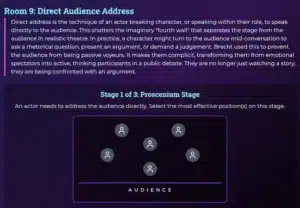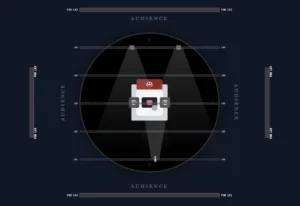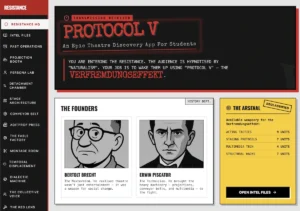Epic Theatre Word Search Puzzle
Epic Theatre, developed most famously by Bertolt Brecht in early 20th-century Germany, is a style that resists emotional immersion and instead encourages audiences to question the social, political, and economic forces shaping human life. Brecht’s theatre broke from naturalistic conventions by using techniques such as songs, signs, narration, and direct audience address to produce what he called the Verfremdungseffekt (alienation effect). These devices were designed to provoke critical reflection rather than passive empathy, transforming the theatre into a space of enquiry and debate.
To help students engage with the essential vocabulary of Epic Theatre, this interactive word search puzzle reinforces key terms such as Gestus, Historicisation, Parables, Montage, and Dialectics. Each word is embedded within a fifteen-by-fifteen grid. When a student successfully identifies a term, an educational pop-up will appear on screen, providing a concise definition and contextual explanation. In this way, the puzzle combines entertainment with targeted learning, making abstract theoretical concepts more memorable through playful exploration.
The puzzle can be used in several ways. Teachers may integrate it as an introductory activity before a unit on Brecht, a revision tool at the end of lessons, or an independent learning task that consolidates knowledge outside the classroom. The bold colours and responsive layout are intended to appeal to teenage learners, while the inclusion of commentary in the pop-ups ensures that the game supports deeper comprehension rather than rote recall.





